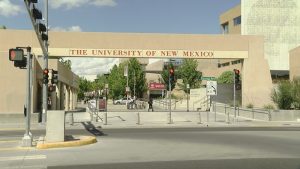A new study shows that the transition to 5G wireless services will create an additional 4.6 million jobs in the United States by 2034 – and that the move to the latest generation of wireless technology has created over 100,000 jobs already since last year.
FBI Director Chris Wray said on Sept. 16 that his agency hasn’t seen any attempts thus far by foreign actors to attack the U.S. voter registration databases in the run-up to the November elections, or any attempt to tamper with vote counts.
The Mooresville School District, in Indiana, has launched what is being dubbed “the classroom of the future” just in time for the 2020-2021 school year.
Pepperdine University announced today that it has upgraded more than 160 classrooms to enable hybrid learning.
CYBER.ORG, a cybersecurity workforce development organization supported by the Department of Homeland Security, announced the kickoff of the development of the K-12 cybersecurity learning standards that can be used in schools nationwide.
The University of New Mexico knows that IT modernization doesn’t come cheap, so it has set its sights on selling bonds as a means to fund campus projects.
The Centers for Medicare & Medicaid Services (CMS) reimburses states for most Medicaid costs and is supposed to oversee how states use funds, but its IT systems have had problems with ensuring proper oversight, and CMS no longer supports efforts to reduce duplication by state systems, the Government Accountability Office (GAO) said.
Up to 1.7 million K-12 students in Oregon and Washington are getting access to Verizon’s Distance Learning Program. Today Verizon announced that it has signed an agreement with the Oregon Department of Education (ODE) to provide reliable and affordable Internet access for up to 1.7 million students across Oregon and Washington.
For many colleges – Garrett College in Maryland included – COVID-19 has led to a rapid acceleration of classroom technology upgrades.
The Miami-Dade County Public Schools (M-DCPS) had a rough start to the new school year. In the first three days of the fall semester, M-DCPS was the target of various cyberattacks designed to cause disruptions in Internet service, impeding teaching and learning. In partnership with the Miami-Dade Schools Police Department (M-DSPD), FBI, the Secret Service, and the Florida Department of Law Enforcement, the cybercriminal was identified and arrested.













